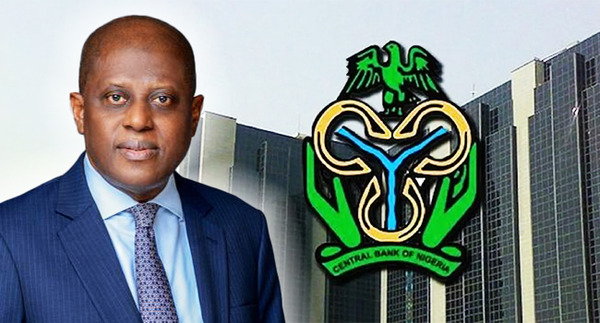Nigeria’s broad money supply (M2) surged by 65 percent on a year-on-year basis, reaching N107.1 trillion in August 2024, according to newly released data from the Central Bank of Nigeria (CBN). This significant increase in the money supply highlights the growing liquidity within the economy over the past year.
The report also showed that M2, which includes currency in circulation and demand deposits, experienced a modest month-on-month increase of 0.75 percent from N106.3 trillion recorded in July 2024. This steady growth reflects the continued expansion of Nigeria’s monetary base.
Compared to the corresponding period in 2023, when M2 stood at N64.8 trillion, the current figure represents a substantial jump of 65 percent. This sharp rise signals increased liquidity driven by various factors, including changes in government fiscal policies, monetary interventions, and possibly inflationary pressures affecting the economy.
The rapid growth in money supply could have a range of implications for Nigeria’s economic landscape. While increased liquidity may provide more access to credit and stimulate economic activity, it also raises concerns about inflationary pressures, as more money in circulation can drive up demand for goods and services, potentially leading to higher prices.
Economists will be closely monitoring the effects of this increase in M2 on key indicators such as inflation, interest rates, and the exchange rate. The CBN’s monetary policy decisions in the coming months are expected to focus on managing this liquidity to ensure that it contributes positively to the nation’s economic stability while mitigating any negative impacts on price stability.
As Nigeria continues to navigate complex economic challenges, including foreign exchange volatility and inflationary pressures, the growth in money supply will likely play a critical role in shaping the country’s financial landscape. The CBN’s policy approach in response to this trend will be vital in determining how the economy adapts to these evolving dynamics.
The significant rise in Nigeria’s money supply underscores the importance of careful monetary management as the nation seeks to balance growth, inflation control, and overall economic stability.












I think this rise in money supply could lead to inflation. We might need to watch out for that!
Inflation wont be a concern if the economy grows at the same rate. Keep an eye on it though.
This seems fishy – where did all that money come from? Something smells off here…🤔💸 #ConspiracyTheory #NigeriaMoneySupply
Stop jumping to conclusions. Lets wait for the facts before spreading rumors. 🤨💰 #FactCheck #Patience
I dont buy it! With all that money circulating, why are there still so many people struggling in Nigeria? Somethings fishy here.
This rise in money supply? Just means more inflation coming our way. Brace yourselves for expensive suya, folks!
Actually, increased money supply doesnt always lead to inflation. Its a bit more complex.
I dont get why people are freaking out about this. Money supply rising means more cash to spend, right? 💸🤔
I think we should all switch to using cowrie shells as currency. Whos with me? Lets bring back ancient Nigeria vibes! 🐚💰
Is this a sign of economic growth or impending doom? Lets debate the impact of such a massive increase in money supply!
Wow, thats a huge increase! But I wonder if all that money is really reaching the people who need it most.
Is printing more money the solution or the problem? Lets discuss the implications of Nigerias 65% money supply increase!
This is insane! Why are we printing money like monopoly? Inflation is gonna hit us hard. Time to invest in crypto!
Why are we not discussing the impact of this money supply increase on inflation and the average Nigerians purchasing power?
This rise in money supply is great news! But, shouldnt we be concerned about potential inflation and its impact on the economy?
I dont buy it! The increase in money supply sounds fishy. Whos benefiting from this surge? Something smells off.
I dont buy it! Something fishy is going on with Nigerias money supply. We need transparency and accountability ASAP!
I think the government is just printing money like crazy! Hyperinflation, here we come! This cant end well.
Isnt it wild how money supply in Nigeria is skyrocketing? Will this lead to economic growth or hyperinflation? Lets discuss!
Hyperinflation is a real risk. Nigeria needs to control money supply for sustainable growth.
Wow, thats a massive jump in money supply! But will this lead to inflation or boost economic growth? Lets discuss!
Is this surge in Nigerias money supply sustainable or a cause for concern? Lets discuss the implications! 🤔💸 #FinancialTalks
Wow, thats a massive increase! But will this surge in money supply lead to inflation or economic growth? Curious to see the outcome.
This increase in money supply is a ticking time bomb! Inflation, anyone? Brace yourselves for economic turbulence ahead.
Is this surge in money supply a sign of economic growth or a looming inflation disaster? Thoughts? 🤔💸 #NigeriaEconomy #MoneyMystery
Im not buying it! How can Nigerias money supply surge 65% in a year? Something fishy is going on here. Thoughts?
Wow, thats a huge increase in money supply! But will this lead to inflation or economic growth? Curious to see the impact.
I wonder if this surge in money supply will lead to inflation or economic growth. Any thoughts? 🤔💰 #NigeriaEconomy #MoneyMatters